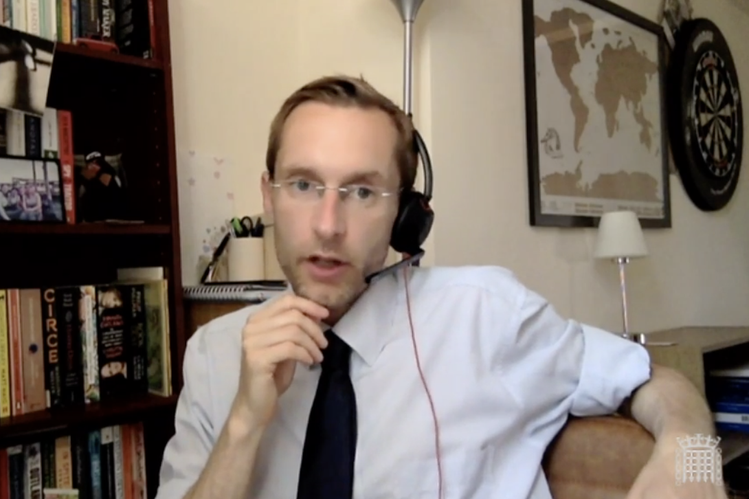The man behind the UK’s sanctions regimes is expecting significant legal challenges as the government’s crackdown on Russia’s war with Ukraine continues.
Giles Thomson, the director of the Office of Financial Sanctions Implementation, said that litigation was already starting to filter through.
His team was “expecting to come up against further litigation in the future” as it takes on more enforcement cases, he added.
“I think we very much see it as part of what we do,” Thomson told MPs on the Treasury Committee. “We have had legal challenges based on what we have done to date already.”
The coming wave of litigation is set to thrust the role of the City’s legal profession back into the spotlight after attracting controversy for its historic ties with Russian oligarchs.
Some of the City’s law firms have seen their workloads increase in the wake of the sanctions.
“At the beginning of the year.” [sanctions] was not at all part of the strategy… [But] if a big bill comes in in the regulated space that’s where we’ll go,” one financial regulation partner, whose firm has already taken on an extra paralegal and associates in part because of the additional work, told Financial News earlier this month.
READLondon lawyers hit back at ‘dangerous’ criticism of Russia links
But the City’s legal profession has also seen its reputation attacked for working with oligarchs in the region. Figures such as hedge fund founder Bill Browder and US representative Steve Cohen called on governments to hit the “enablers” of President Vladimir Putin’s regime with punishments such as visa bans.
London law firm partners and other City insiders have slammed the attacks as “dangerous” and “populist posturing”.
Thomson said court cases were more likely to surround them on larger sums, resulting in even higher-profile cases to come.
READFN’s audience with Giles Thomson
However, he said he was confident OFSI — which is responsible for communicating, implementing and enforcing the UK’s sanctions regime — was up to the task of defending the lawsuits.
“We have a function within the team ready to deal with that litigation and we’re ably supported by legal advisers within the Treasury and government,” he said.
“The government has a large amount of experience within the legal teams of dealing with this sort of thing,” he added. Other bodies such as the Financial Conduct Authority and HMRC are also weighing in with their expertise, he said.
When Financial Newsinterviewed by Thomson last monthhe noted his office had to be “ruthless” in what it prioritised in the wake of a deluge of Russian sanctions that placed significant pressure on resources.
The workload had dropped from the “utter craziness” at the start of the conflict, but was still “fairly relentless”, he told FN. The number of Russian entities sanctioned in two months after the start of the war had reached more than 1,100, he said — nearly four times the number that was sanctioned over an entire year between April 2020 and March 2021.
Speaking to the MPs on 22 June, Thomson described the response to Russia’s aggression in Ukraine as “one of the most if not the most extraordinary package of sanctions ever implemented, both in its scale, volume, speed and complexity”.
“There have been a huge volume of enquiries and we’ve not been able to answer all of those to the standard we would have wanted,” he acknowledged.
“It’s been hard work, there’s no denying that,” he told the lawmakers, but said OFSI had already nearly doubled its team from 45 to 70 people since the start of the Russia crisis.
To contact the author of this story with feedback or news, email Justin Cash
.

